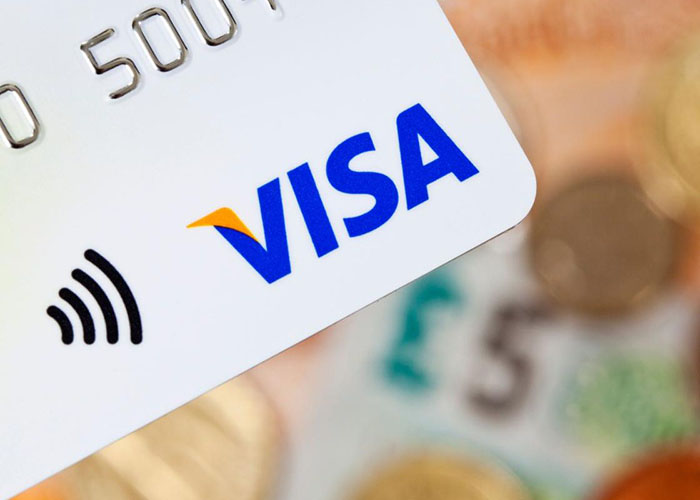
The Sunday Mail

Howdy folks!
The announcement by Standard Chartered Bank that they were cancelling the automatic use of their Visa cards outside Zimbabwe caused a brouhaha.
Clients are protesting why they cannot use their hard-earned money outside the country. What should they do when they travel abroad? After all, it is difficult to even withdraw cash from local banks when you are travelling out of the country. Are other banks going to do the same?
These are some of the genuine concerns the public is raising.
StanChart said the decision had been taken to ensure best use of the increasingly scarce foreign currency, which is disbursed in line with the Priority List issued by the Reserve Bank of Zimbabwe.
It further said clients who wish to use their cards outside can apply for special consideration by submitting evidence of all the expected expenses to be incurred abroad.
The bank said it would review the submissions in line with the RBZ Priority List Guidelines and then accept or deny use of Visa cards outside Zimbabwe.
The Priority List is a schedule of foreign exchange priorities to guide banks in the distribution of foreign currency.
It is part of the measures the central bank adopted in May last year to deal with cash shortages and stabilising and stimulating the economy.
The central bank said then that the list was important in promoting efficient utilisation of foreign currency and to reorient import demand towards productive uses.
It also argued that the move would ensure the available foreign exchange resources were efficiently appropriated towards sectors of the economy with capacity to generate the much-needed liquidity to fund the economy’s foreign payments.
The list was crafted by the RBZ together with business associations such as the Confederation of Zimbabwe Industries, Zimbabwe National Chamber of Commerce and the Bankers’ Association of Zimbabwe.
The interesting question is: Was the Consumer Council of Zimbabwe, which exists to empower and protect consumers, represented to take into account the important needs of the consumer?
Business can be driven by self-interest, and if people are restricted to buy local, then it’s a plus on their side as demand switches in favour of their products.
But it is important to understand the contents of that Priority List in the context of StanChart’s position that “all applications will be reviewed in line with the Priority List Guidelines”.
The list has four levels, which are: High Priority, Medium Priority, Low Priority and Not Priority.
What is interesting is that the things that people want to do with their Visa cards abroad are really not in any of those priority segments.
High priority is actually given to activities such as imports of critical and strategic goods like fuel and agro-chemicals; net exporters who import raw materials or machinery and non-exporting importers of raw materials, among others.
Who really wants to import raw materials while on their exotic trip using their visa card?
Another interesting thing about that priority list is that it says “funding of offshore credit cards” is “not priority”.
In that category also falls importation of trinkets, low local content consumer goods and/or goods or services readily available in Zimbabwe.
Ironically, this is actually what most people want to do with their visa cards abroad.
If StanChart is going to use the RBZ Priority List, it, therefore, follows that chances of anyone using their visa cards abroad are very slim. Come to think of it, even those companies that are in the high priority zone have been complaining that they are not getting adequate foreign currency on time.
Last year, oil expressers complained that their capacity utilisation, which had reached 100 percent at some point, had fallen to below 50 percent due to lack of foreign currency to import raw materials.
It will be worse for many visa card users who also have challenges withdrawing their cash from local banks.
What will they do if they intend to travel abroad?
This is certainly going to fuel the growth of the already thriving parallel market that has been charging people usurious rates to get hard cash.
However, the decision by StanChart is somehow a reflection of the Zimbabwe economy’s.
Every transaction you conduct with your visa card abroad means that local banks have to pay their counterparts abroad in hard currency, which happens to be erratic.
If something is scarce, it is usually rationed using a criterion that limits access to all.
The rationing is happening on the black market through high premium charges and on the conventional market through criteria such as the Priority List.
If banks don’t have foreign currency to settle, and if they are to liberally allow visa transactions abroad, then it would create a liability for them.
Banks simply cannot give what they don’t have. Banks are, therefore, looking at their balance sheets and their ability to settle with their counterparts abroad.
It is a convincing argument that we may have to utilise the erratic forex for the important things that keep the economy ticking, although it brings much inconvenience to consumers.
However, a sustainable solution lies in accelerating value-addition and competitiveness, diversifying our economy and export markets as well as intensifying measures to deal with externalisation, cash hoarding and smuggling of the greenback.
Government should also interrogate whether to keep the bond currency’s value pegged to that of the greenback when the bond has limitations the greenback does not.
Shouldn’t market forces decide its value? Government should also do a proper research to establish a sustainable currency for Zimbabwe, which can support our economic priorities.
It would appear that politicians are just making emotional decisions; to accept and reject use of certain currencies as trading currencies, and that is not backed by any concrete evidence.
Later folks!



